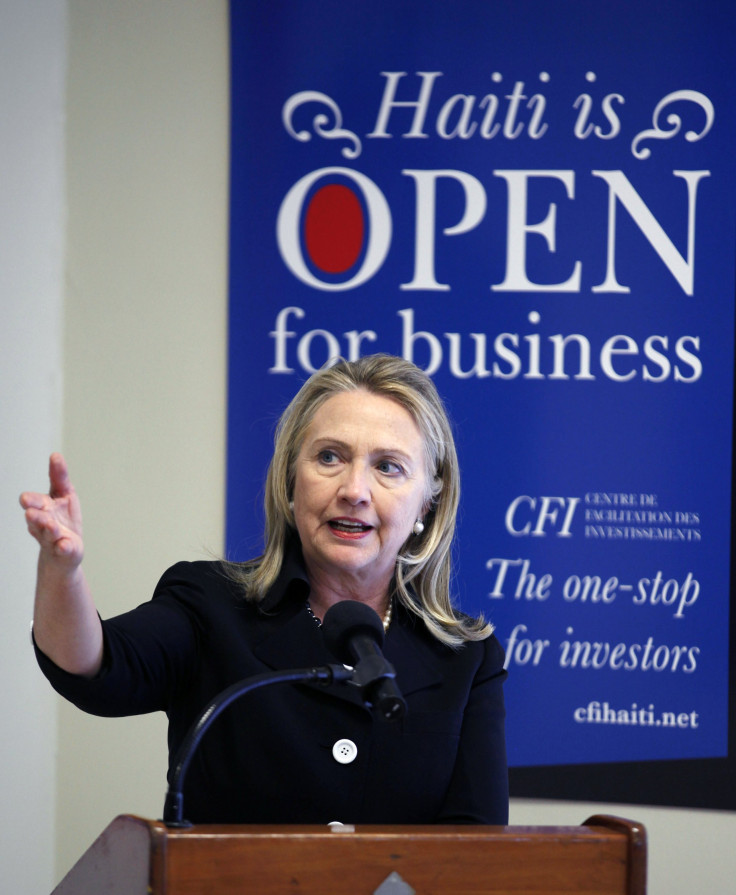Cybersecurity Questioned Amid Declassified Libya Emails, Leaked Guantanamo Bay Manual

Newly declassified emails reveal what the State Department knew during and after the Sept. 11 attacks on the Benghazi, Libya, U.S. Consulate that killed Ambassador Christopher Stevens and three members of his staff. The release of the messages, which detail the earliest descriptions of the attack, coincide with Wikileaks founder Julian Assange’s decision to leak the staff manual handed out in 2002 to new staff at the Guantanamo Bay prison in Cuba.
The emails do not contain any specific mention of a terrorist plot and are only a small fraction of State Department correspondence, but are certain to enter the political debate with less than two weeks until the presidential election. Republicans have accused President Barack Obama and his administration of misleading the American people and downplaying the involvement terrorists had in the plot.
CBS News reports that the White House Situation Room, the FBI and the Office of the Director of National Intelligence were alerted to the attack at 4:05 p.m. EDT on Sept. 11.
“Embassy Tripoli reports approximately 20 armed people fired shots; explosions have been heard as well,” the message read. It came in at 4:05 p.m. Eastern time, or 10:05 p.m. Libyan time. The State Department previously said the attack came about 25 minutes earlier than it did, according to the Washington Post.
“Ambassador Stevens, who is currently in Benghazi, and four personnel are in the compound safe haven,” the email said. The entirety of the declassified documents can be found here.
The White House has been adamant that the security briefs at the time indicated no concrete evidence of terrorist activity, something Secretary of State Hillary Clinton continued to stress on Wednesday during a meeting with reporters.
“Posting something on Facebook is not in and of itself evidence” of terrorist activity, Clinton said. “I think it just underscores how fluid the reporting was at the time and continued for some time to be.”
Just 14 hours after news of the attack broke, Obama spoke with Steve Kroft of “60 Minutes” and hinted that the administration suspected something more than a random protest around the “Innocence of Muslims” propaganda film, which was previously cited as the cause of the violents outbreaks.
“You’re right that this is not a situation that was – exactly the same as what happened in Egypt, and my suspicion is that there are folks involved in this who were looking to target Americans from the start,” Obama said.
The president scored political points when the issue came up during his second debate with Republican candidate Mitt Romney, who has claimed that Obama is too soft on the Middle East. When pressed, debate moderator Candy Crowley announced that Obama did, in fact, refer to the attack as an “act of terror” during a press conference on Sept. 12, as noted by CNN.
This story parallels the news that hacker group Wikileaks published more than 100 files from the U.S. Defense Department regarding policies at the then-new Guantanamo Bay detention camp. Reuters reported that Wikileaks founder Julian Assange said he wanted to leak the documents in order to find out more about America’s “policies of unaccountability.”
“The ‘Detainee Policies’ show the anatomy of the beast that is post 9/11 detention, the carving out of a dark space where law and rights do not apply, where persons can be detained without a trace at the convenience of the U.S. Department of Defense,” Assange said in a statement.
“It shows the excesses of the early days of war against an unknown ‘enemy’ and how these policies matured and evolved,” the statement read, according to Reuters. The policies that began at the oft-criticized detention started “the permanent state of exception that the United States now finds itself in, a decade later.”
While detailing controversial interrogation methods employed at Gitmo, the documents also reportedly outline the government’s policies of making persons of interest “disappear” by failing to mark their location in military records. Reuters reported that the government has never confirmed or denied the existence of supposed military “black sites.”
Following the Gitmo leak and newfound attention on the Libya emails, five U.S. technology companies announced they will research the best methods of improving cybersecurity. Reuters reported that Defense Secretary Leon Panetta warned of the increased likelihood of an attack on banks and power grids. Lockheed Martin Corp. and Intel are just two of the companies that have begun working on improving the holes.
“We’re going to try to bring together the government, academia, and industry to collectively lay out a road map for what are the critical problems and what are the technical solutions that may work,” said a senior executive at Lockheed, Lee Holcomb. “How do we make it real?”
The director of senior architecture at AMD, Ron Perez, seemed to concur with Holcomb, and perhaps unknowingly echoed the same concerns the State Department has.
“To really address these problems, it’s going to take a long-term, well thought-out collaboration process,” Perez said. “And then we need to pick the low-hanging fruit and start delivering on some of those processes.”
© Copyright IBTimes 2024. All rights reserved.





















